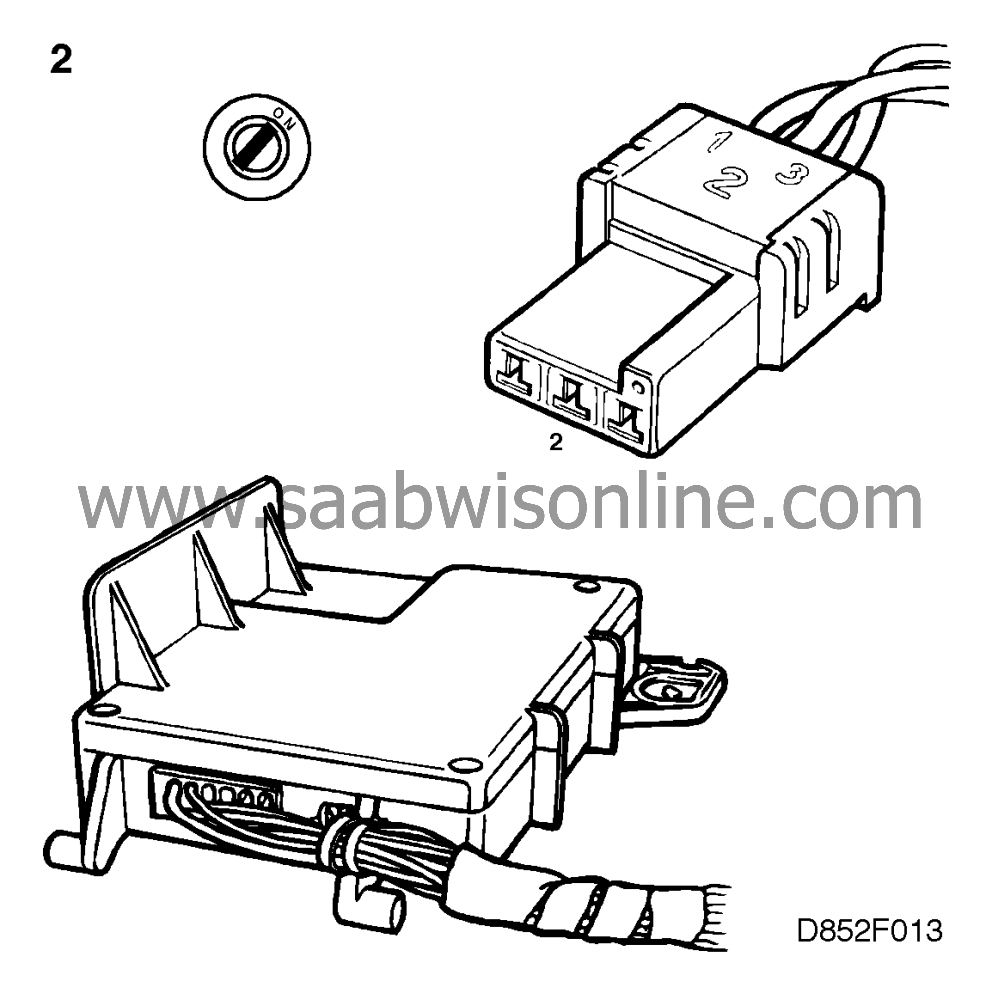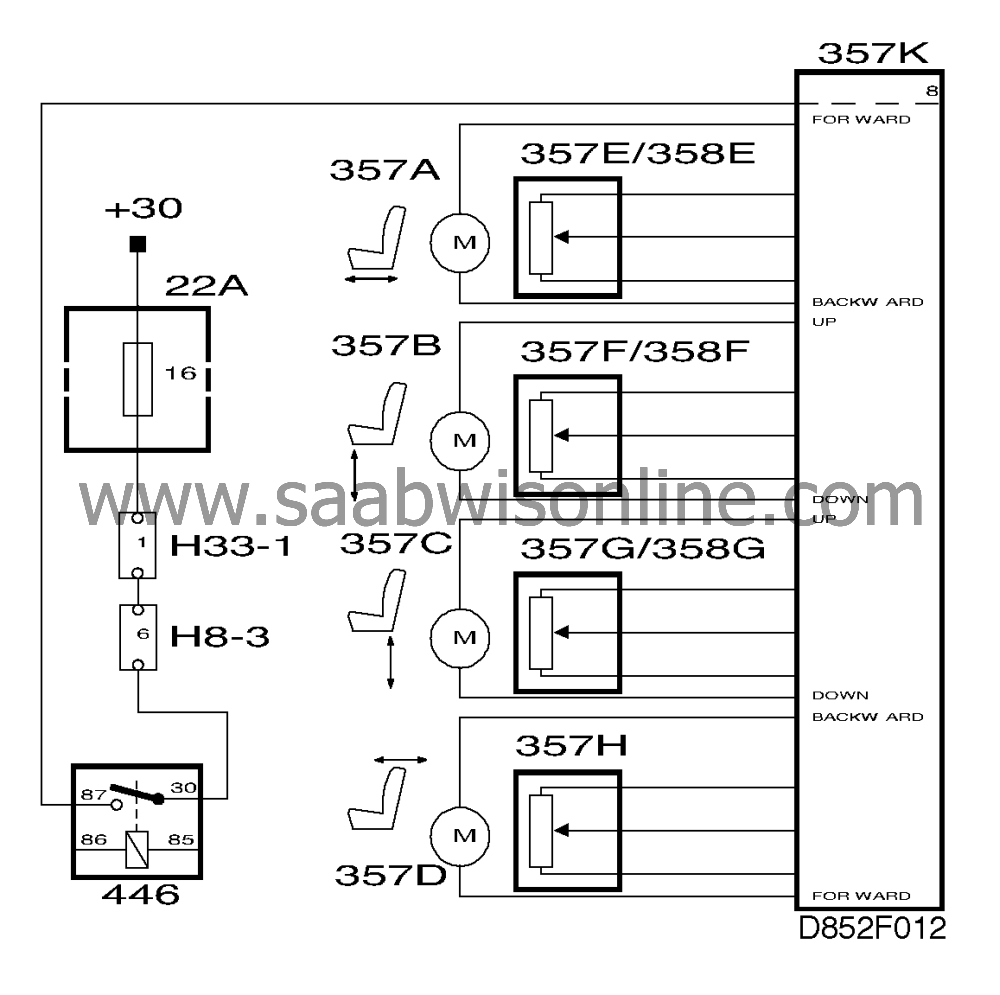45221/25221 , 45222 /25222 ,45223 /25223 , 45224 /25224
Symptom: New seat settings cannot be stored in the memory. One or more motors fail to work when changing to settings stored in the memory. The backrest cannot be adjusted manually (only when backrest potentiometer faulty)
|
|
45221
/
25221
,
45222
/
25222
,
45223
/
25223
,
45224
/
25224
|
Fault symptom:
|
•
|
New seat settings cannot be stored in the memory.
|
|
•
|
One or more motors fail to work when changing to settings stored in the memory.
|
|
•
|
The backrest cannot be adjusted manually (only when backrest potentiometer faulty)
|
Diagnostic trouble codes
XX221 - Seat front pot break/short batt+ XX222 - Legroom adjustment pot break/short batt+ XX223 - Seat rear pot break/short batt+ XX224 - Backrest pot break/short batt+
Probable causes:
|
•
|
Connection broken between: the electronic unit and pin 3 of the potentiometer, the electronic unit and pin 2 of the potentiometer.
|
|
•
|
Short circuit in the leads connected to pins 1 and 2 of the potentiometer.
|
Diagnostic procedure:
|
Important
|
|
If a potentiometer has been removed, it must be recalibrated before the seat is used. Calibration is carried out by running the relevant motor to both end positions.
|
|
|
|
1.
|
Unplug the potentiometer connector. With the ignition switched on or a door open, take a reading across pins 1 and 3 to check whether the potentiometer is being supplied with current. A reading of about 5 V should be obtained. This is the standard voltage. If such a reading is not obtained, check the connection between pin 1 of the potentiometer and the control module, and also between pin 3 and the control module. If this is OK, continue with point 2.

|
|
2.
|
Check the connection between pin 2 of the potentiometer and the control module.

|
|
3.
|
Check whether the potentiometer is OK by measuring the resistance across its connections. Correct resistances are:

across pins 1 and 3 = approx. 2200 ohms
across pins 2 and 3 = 200 - 2200 ohms
across pins 1 and 2 = 200 - 2200 ohms
If the correct resistance is not obtained, the fault lies with the potentiometer and it must be changed.
If the correct resistance is obtained, the fault lies with the control module and it must be changed.
|






